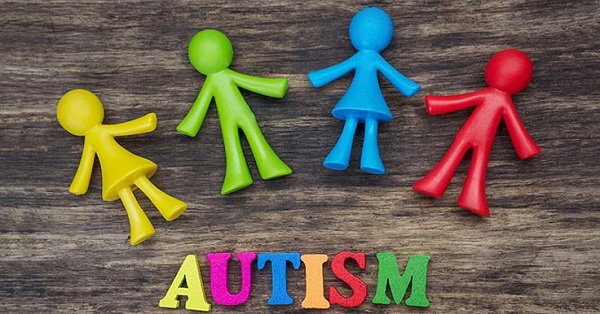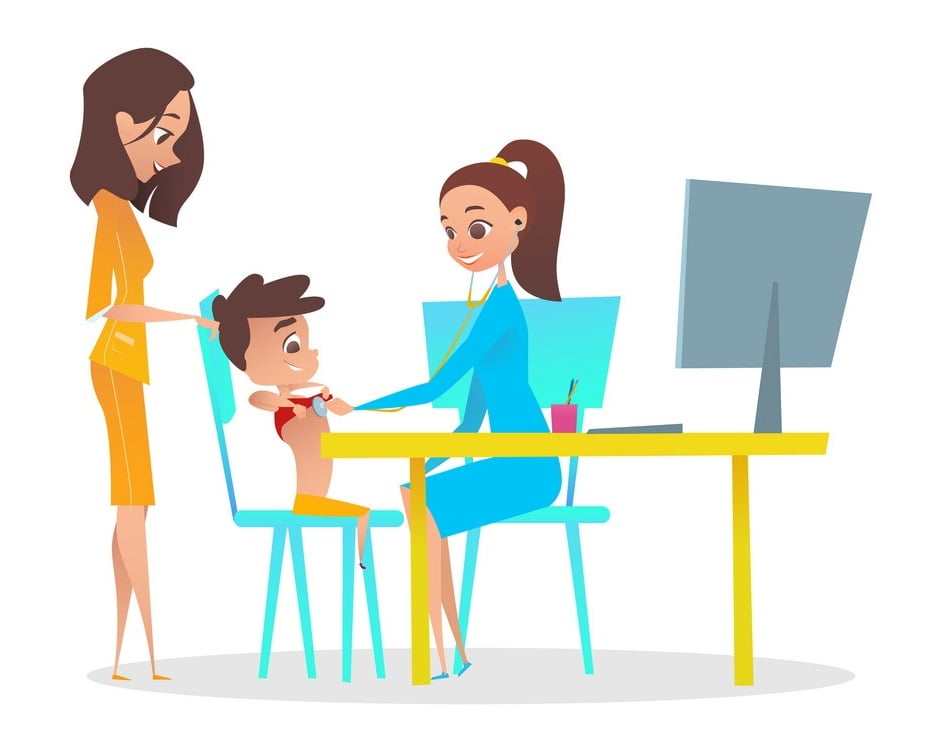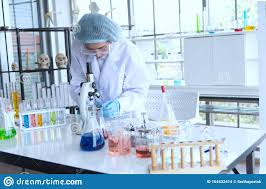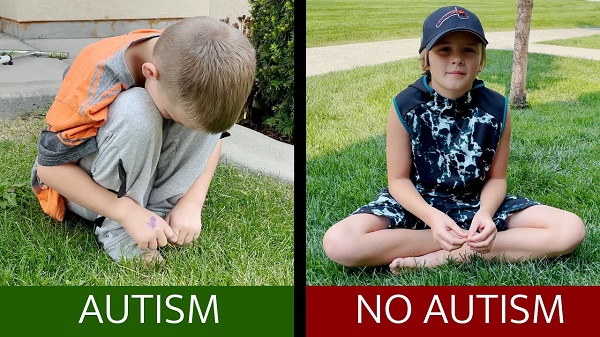Autism
Autism, also known as Autism Spectrum Disorder (ASD)
Ayurveda and naturopathy are increasingly being explored as complementary approaches to managing Autism Spectrum Disorder (ASD). Institutions like Dham Jaipur have started offering treatments that integrate these traditional practices. Here’s a brief overview of how Ayurveda and naturopathy are applied in the context of ASD treatment at such centers:
Ayurveda in ASD Treatment
Ayurveda, a traditional Indian system of medicine, focuses on balancing the body’s doshas (vata, pitta, kapha) through diet, herbal remedies, and lifestyle changes. In the context of ASD, Ayurvedic practitioners might:
1. **Dietary Adjustments**: Tailor diet plans to improve digestion and reduce inflammation, as dietary issues are often noted in children with ASD.
2. **Herbal Remedies**: Use herbs like Brahmi (Bacopa monnieri), Ashwagandha (Withania somnifera), and Shankhpushpi (Convolvulus pluricaulis) for their potential cognitive and calming effects.
3. **Panchakarma**: Employ detoxification techniques to cleanse the body and improve overall health.
4. **Massage and Therapies**: Utilize Abhyanga (oil massage) and Shirodhara (pouring liquids over the forehead) to promote relaxation and reduce sensory sensitivities.
Naturopathy in ASD Treatment
Naturopathy emphasizes natural healing processes, combining dietary guidance, physical therapies, and lifestyle interventions. For ASD, this might include:
1. **Nutritional Therapy**: Focus on correcting nutritional deficiencies and food intolerances, which are common in children with ASD.
2. **Hydrotherapy**: Use water-based treatments to enhance relaxation and reduce anxiety.
3. **Physical Activity**: Encourage exercises and physical activities that improve motor skills and overall well-being.
4. **Mind-Body Practices**: Integrate yoga and meditation to enhance focus, reduce stress, and improve emotional regulation.
At institutions like Disha Arogya Dham in Jaipur, Ayurveda and naturopathy are increasingly being used to complement conventional treatments for Autism Spectrum Disorder (ASD). These traditional practices focus on holistic approaches to health, aiming to balance the mind, body, and spirit. Here’s an overview of how these therapies are applied in the context of ASD treatment:
Ayurveda
Ayurveda is an ancient system of medicine from India that emphasizes balance in the body’s energies, known as doshas: Vata, Pitta, and Kapha. For treating ASD, Ayurvedic practitioners typically focus on the following aspects:
1. **Diet and Nutrition**: Customized diets are designed to balance the doshas and improve digestion, which is often a concern for individuals with ASD. These diets may include organic, whole foods and avoid processed foods and allergens.
2. **Herbal Remedies**: Specific herbs known for their calming and cognitive-enhancing properties are used. Examples include Brahmi (Bacopa monnieri) and Ashwagandha (Withania somnifera), which are believed to improve mental clarity and reduce anxiety.
3. **Panchakarma Therapy**: This is a detoxification process aimed at cleansing the body of toxins. It includes procedures like massage, oil baths, and steam therapy, which help in balancing the doshas and improving overall well-being.
4. **Yoga and Meditation**: These practices are integrated to enhance focus, reduce stress, and improve emotional regulation. Simple asanas (postures) and breathing exercises are tailored to the individual’s needs.
5. **Routine and Lifestyle Adjustments**: Emphasis is placed on establishing a daily routine that aligns with natural rhythms, which can provide stability and predictability for individuals with ASD.
Naturopathy
Naturopathy emphasizes natural healing and the body’s intrinsic ability to heal itself. In the context of ASD, naturopathic treatments may include:
1. **Nutritional Support**: Similar to Ayurveda, naturopathy places significant emphasis on nutrition. Supplements such as omega-3 fatty acids, probiotics, and vitamins may be recommended to address nutritional deficiencies and support brain health.
2. **Detoxification**: Gentle detoxification techniques are employed to reduce toxic load in the body, which might involve dietary changes, herbal cleanses, and hydrotherapy.
3. **Homeopathy**: Tailored homeopathic remedies might be prescribed based on individual symptoms and health status to stimulate the body’s healing processes.
4. **Physical Therapies**: Techniques like massage therapy, hydrotherapy, and other hands-on therapies are used to improve physical and mental relaxation, enhance sensory integration, and reduce anxiety.
5. **Behavioral and Cognitive Interventions**: Combining natural treatments with behavioral therapies can help improve social skills, communication, and adaptive behavior in individuals with ASD.
Integration of Ayurveda and Naturopathy
At centers like Disha Arogya Dham, an integrated approach is taken, where a personalized treatment plan is developed for each individual. This plan might combine the dietary and herbal treatments from Ayurveda with the detoxification and supplement strategies from naturopathy, along with yoga, meditation, and other supportive therapies.
Benefits and Considerations
These holistic treatments aim to:
– Enhance overall physical health
– Improve digestive function
– Reduce anxiety and improve emotional regulation
– Support cognitive and behavioral development
– Provide a non-invasive, complementary approach to conventional ASD treatments
It’s essential to approach these treatments under the guidance of qualified practitioners, as the effectiveness and safety of some therapies may vary among individuals. Regular monitoring and a tailored approach are key to achieving the best outcomes in managing ASD through Ayurveda and naturopathy.

What is Autism?
No link has been found with family history.
Certain genetic problems where seen in fragile X syndrome.
According to DAD Ayurveda, autism occurs when social interaction becomes impaired due to a lack of information processing in the brain. A pregnant woman who does not consume a diet rich in folic acid and has a late pregnancy may give birth to a child with autism. It occurs in 1 child in 2000. Symptoms appear within 3 years of one’s life.
Symptoms of autism:
Social interactions: The infant avoids eye contact and does not hug.
There will be no close personal relationship between them.
Don’t care about the feelings of others and even they don’t express anything.
Language Skills in Autism:
- About 50% of them never learn to speak.

- Uses words in an unusual way.
- Often they repeat spoken words.
- They can reverse words that are spoken and speak in an unusual tone and rhythm.
- They do not understand simple questions.
Behavior in Autism:
- Very resistant to changes such as new food, toys, clothes, etc., and especially highly attached to inanimate objects.
- They tend to repeat certain actions and that can cause harm to themselves.
- Disturbed by sound and light.
Intelligence in Autism:
- Some degree of mental retardation is visible, IQ will be less than 70.
- Some children will have advanced skills where some produce them well and some do not.
Treatment of Autism in DAD Ayurveda:
Stabilizing and balancing the body and mind and improving them in normal daily routine and activities. Some specialized treatment modalities like Taal Podichil, Murdha Thala that nourish and rejuvenate brain cells, offer a promising future for those who suffer from autism.
Autism, also known as Autism Spectrum Disorder (ASD), is a neurodevelopmental disorder that affects communication and social interaction skills. It is characterized by repetitive behaviors, limited interests, and difficulties with verbal and nonverbal communication.
At DAD Ayurveda, we understand the challenges faced by individuals with autism and their families. Our approach combines the principles of Ayurveda, an ancient Indian medical system, with modern therapies to provide comprehensive support and holistic care for individuals with autism.
Ayurveda views autism as an imbalance in the body-mind complex, and our treatments aim to restore this balance. We offer a range of personalized therapies and interventions, tailored to meet the specific needs of each individual. These may include dietary modifications, herbal medicines, detoxification techniques, yoga, meditation, and sensory integration therapy.
Our experienced team of Ayurvedic doctors, therapists, and special educators work closely with families to create individualized treatment plans. They provide guidance and support throughout the journey, addressing concerns and answering questions along the way.
We believe in a multi-disciplinary approach, collaborating with other professionals such as speech therapists, occupational therapists, and psychologists to provide a comprehensive care plan. This integrated approach ensures that all aspects of the individual’s well-being are taken into consideration.
Our goal at DAD Ayurveda is to improve the quality of life for individuals with autism and help them develop their fullest potential. We strive to create an inclusive and nurturing environment, where individuals with autism feel understood, supported, and empowered.
If you or someone you know is seeking holistic care for autism, we invite you to explore our website and learn more about our specialized treatments and services. Together, we can embark on a journey towards a brighter future for individuals with autism.
Autism, also known as Autism Spectrum Disorder (ASD), is a developmental condition characterized by challenges in social interaction, communication, and repetitive behaviors. These difficulties arise from differences in how the brain processes information. Autism can vary significantly in severity and the way it manifests.
Here are some key points about autism:
1. **Prevalence**: Autism occurs in about 1 in 54 children, according to the Centers for Disease Control and Prevention (CDC). This is a significant increase from the previous estimate of 1 in 2,000, indicating better awareness and diagnostic practices.
2. **Symptoms**: Symptoms of autism typically appear in the first three years of life. These can include difficulties in communicating and interacting with others, repetitive behaviors, and a restricted range of interests and activities.
3. **Gender Differences**: Autism is more common in boys than in girls, with a ratio of approximately 4 to 1. This means boys are four times more likely to be diagnosed with autism compared to girls.
4. **Causes and Diagnosis**: The exact cause of autism is not fully understood, but it is believed to involve a combination of genetic and environmental factors. Diagnosis is based on observing behavior and developmental history, often involving a multidisciplinary team of healthcare professionals.
Understanding autism is crucial for providing appropriate support and interventions to help individuals on the spectrum lead fulfilling lives.
















